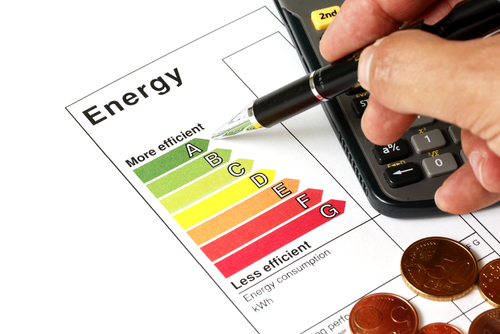
A leading private rental trade body says only bespoke financial help can ensure the private rental sector meets government energy efficiency targets.
Ministers want all new private rented tenancies agreed from April 2025 to be in properties with an energy performance rating of C or better.
According to government figures, it would cost an average of over £7,500 to bring rental properties needing it to an energy rating of at least C.
However the National Residential Landlords Association says just five per cent of private rented households have received government help to fund energy efficiency measures despite having the greatest need.
Although more of those classed as fuel poor live in the sector, private rented households received only half of the help given to those in the social sector.
According to the English Housing Survey, a third of private rented sector housing was built before 1919. This is the hardest to treat and accounts for a larger proportion of the sector than for any other housing tenure. Across England’s entire housing stock, 84 per cent of properties built before 1919 had an energy rating or D or worse.
With 62 per cent of private rented homes having an energy rating of D or below this will largely account for why 37 per cent of all households classed as fuel poor are in the private rented sector compared to 23 per cent in the social sector.
Data shows that 97 per cent of private rented properties with an energy rating of D or lower could reach C or better.
Despite this, the NRLA insists that only five per cent of private rented households across England have received any financial support under government schemes to improve the energy efficiency of housing. This compares to 21 per cent of owner-occupiers, 12 per cent of council households and 11 per cent of those in housing association properties.
Yet the average net annual rental income for a private landlord is less than £4,500 - far below those government figures insisting the necessary work would cost an average of £7,500.
The National Residential Landlords Association is therefore calling for a bespoke financial package to support the improvements needed.
Among the NRLA’s proposals is the development of a scrappage scheme to upgrade windows in private rented homes. A higher proportion of properties in the sector have no double glazing than any other tenure.
It is calling also for energy efficiency measures carried out by a landlord to be offset against tax as repair and maintenance, rather than as an improvement at sale against Capital Gains Tax. This would address anomalies including that whilst replacing a broken boiler is tax deductible, replacing one for a more energy efficient system is not.















%20-%20IMAGE%20Client%20Accounting%20%E2%80%93%20what%20are%20your%20options.jpg)





Join the conversation
Be the first to comment (please use the comment box below)
Please login to comment